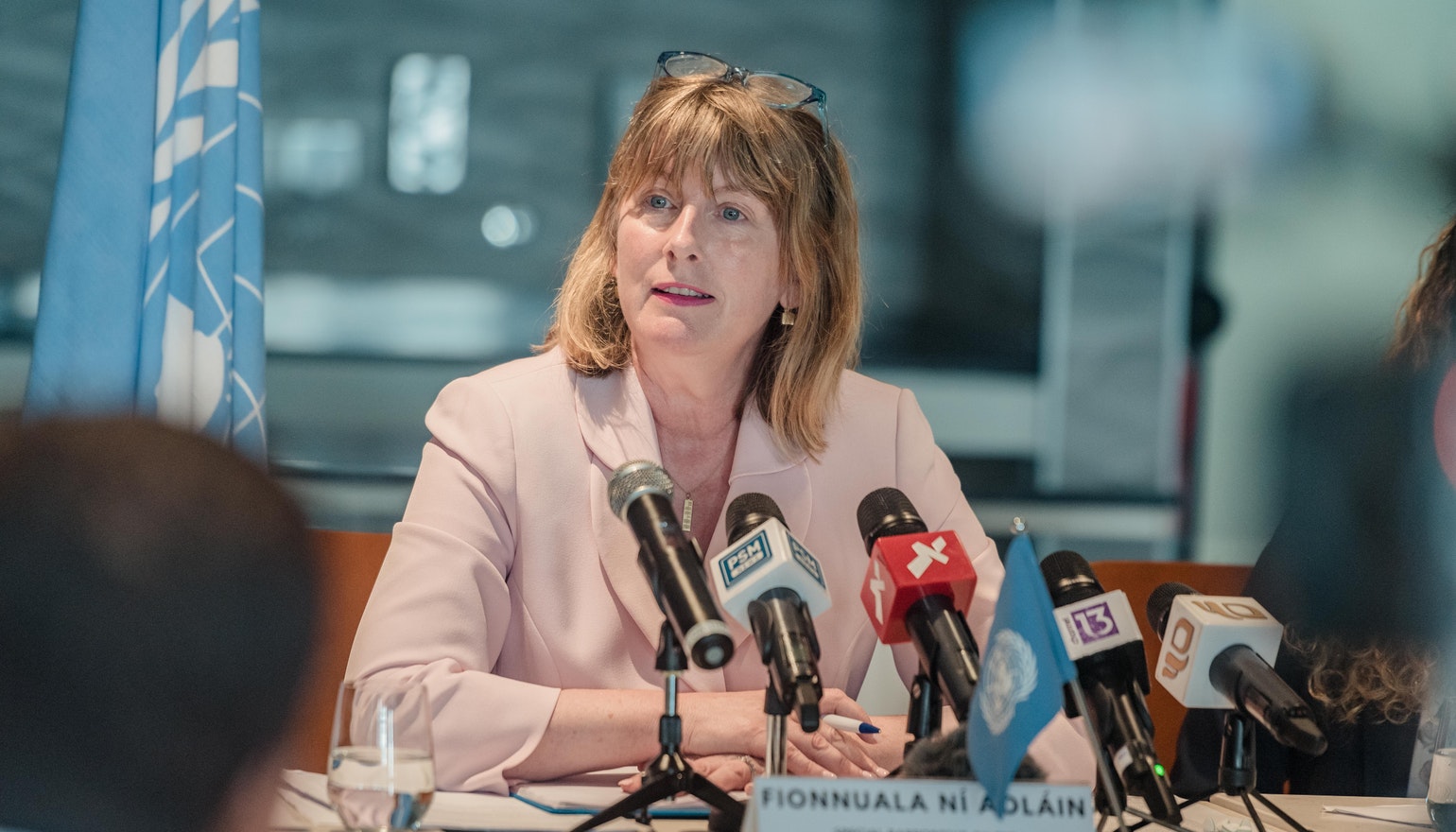Malé, Maldives – The UN Special Rapporteur on the promotion and protection of human rights and fundamental freedoms while countering terrorism, Fionnuala Ní Aoláin, on Tuesday urged the Maldivian government to repatriate Maldivian women and children stranded in Al Hol and Roj camps in North-East Syria and other conflict zones.
The UN human rights expert welcomes the government commitment to bring home Maldivian women and children, urging comprehensive action from the authorities to address the horrific and life-threatening situation faced by their nationals — primarily children – in conflict zones.
More than 50 Maldivian nationals are believed to be living in the camps, without proper access to food, clean water, healthcare and education.
Ní Aoláin said children were living in horrific and unacceptable conditions of detention. “These children are victims of terrorism and must be treated with dignity and respect and returned to the Maldives without stigma to live normal and productive lives,” she said.
The Maldives has recently implemented The Regulation for the registration of children born to Maldivian citizens in war zones (Regulation no. G-1/2022) and repatriated a family of four, including a mother and 3 children, two of whom were born in a foreign conflict zone.
Ní Aoláin said the full and available support of the United Nations including the expertise of her mandate are in place to support the Maldives Government in this effort. “The government must plan concretely for reintegration and treat families and communities of individuals returning as partners in the repatriation process,” the expert said.
Acknowledging the establishment of a National Reintegration Centre, Ní Aoláin advised caution.
Practices of long-term administrative detention, including of children, would be in breach of the country’s international human rights obligations.
While acknowledging that the Maldives has strengthened its counter-terrorism law and policy in recent years, Ní Aoláin urged Maldivian authorities to bring the legislation into full compliance with international human rights standards. She urgently highlights the need to prevent impunity for acts of terrorism and violent extremism.
“In order to address the challenges of violent extremism and terrorism in a human rights compliant manner, prison conditions must be improved, judicial independence must be assured, lawyers must be able to function effectively to defend persons charged of such offences, and the police must be accountable for any violations committed during investigations,” the Special Rapporteur said.
At the end of her visit, Ní Aoláin also expressed deep concern regarding the constriction of civic space and challenges faced by human rights defenders and civil society actors in the country, particularly the digital harassment of women.
During her visit the Special Rapporteur met government officials, the police, military, and corrections services. She engaged with a wide and diverse range of civil society actors including religious leaders. Ní Aoláin visited three places of detention and welcomed her full access to detainees.
The Special Rapporteur’s report on the visit will be presented to the Human Rights Council in March 2023.





